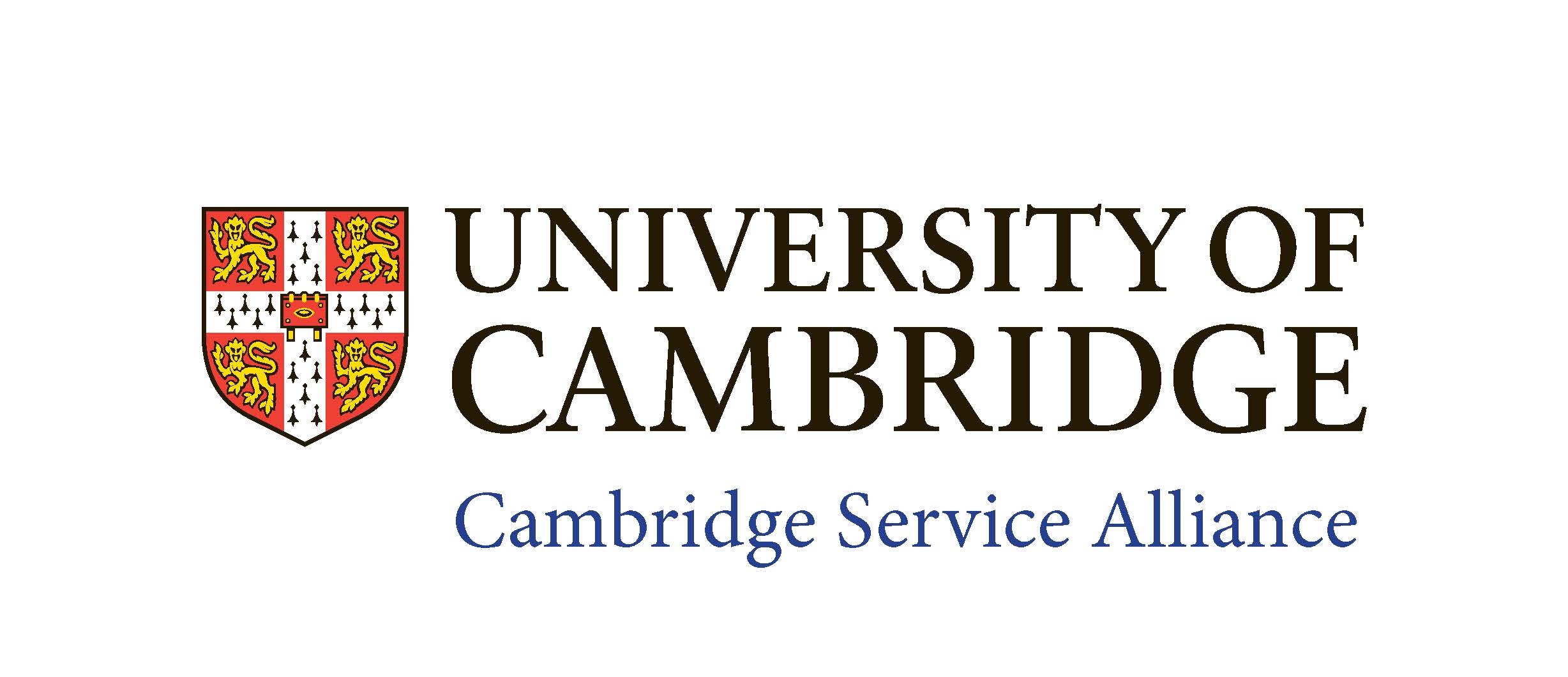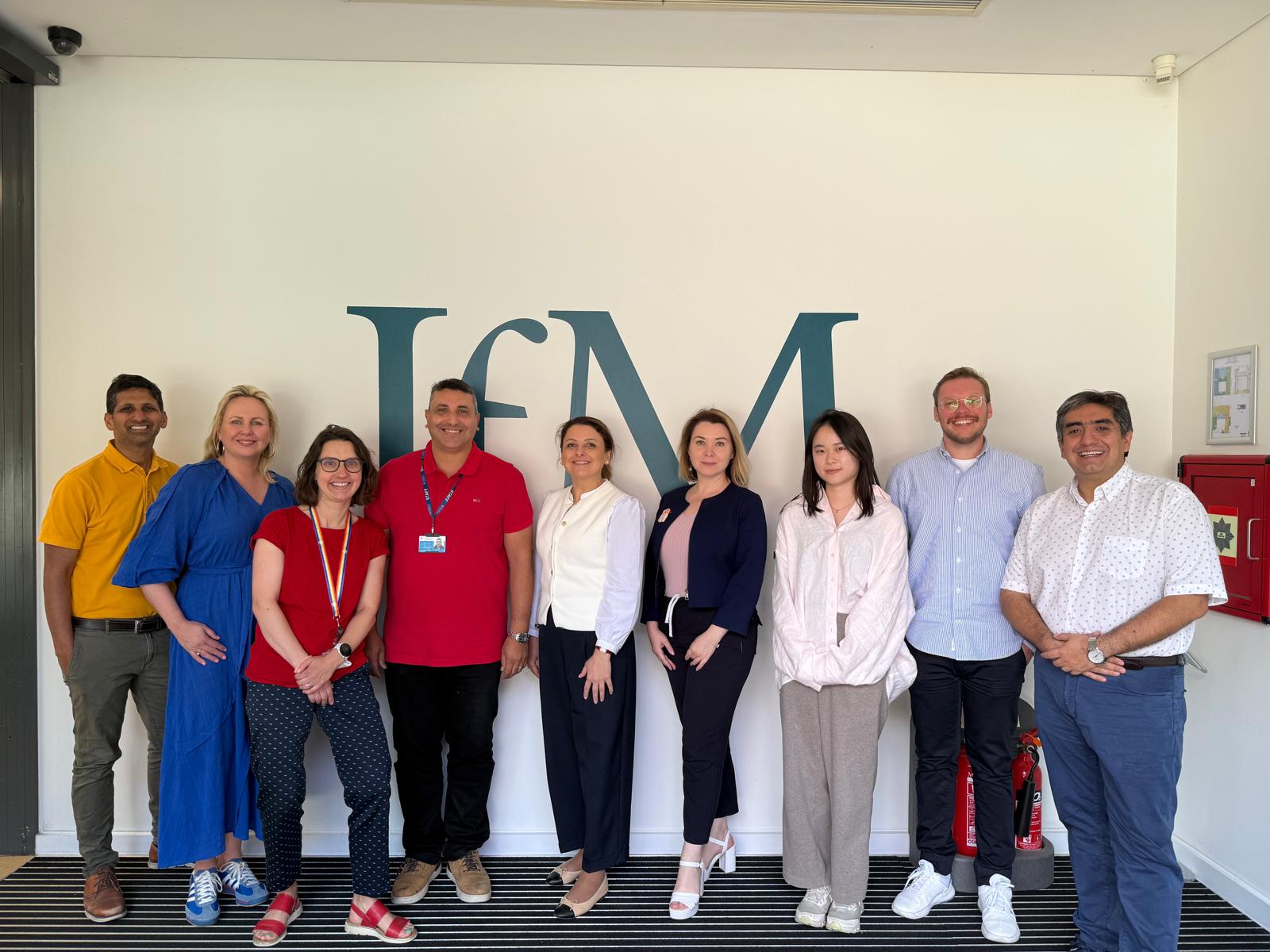What is the future of services in the new pandemic-driven era?
COVID-19 has disrupted every aspect of our live – and the Cambridge Service Alliance Industry Day was no exception. In this, our tenth anniversary year, we were forced to move our physical event online. From our own modest experience of digital transformation, we were able to recognise some of the lessons and perspectives shared with us by our impressive line-up of speakers. In spite of all the challenges it presents, the pandemic has given us an opportunity to do things differently and to learn lessons which will stand us in good stead as we emerge from it.
All our speakers – from Microsoft to Manchester United – shared stories of agility and accelerated change, built on strong digital foundations.
Digital transformation accelerated by a pandemic
Ahmed Wagih, General Manager L'Oreal Consumer Products, L’Oreal
L’Oréal is the world’s largest beauty tech business. Over the last few years, it has seen a huge change in the way consumers are consuming beauty products, demanding experience as well as products. For Wagih, it is L’Oréal’s early adoption of digital that has enabled it to meet this need.
In the 2000s, marketing content was created and delivered through print, television and radio. Today, the landscape is vastly more complex with web, apps and social media dominating the way L'Oréal communicates with its customers. Business channels have also changed with the rise of etailers. At the same time, the amount of data available from supply chain partners has increased exponentially, which makes it possible to identify customers, understand which channels are most effective in reaching them and how to maximise its return on investment.
Examples of how digital has impacted business during the pandemic
EDI connects L’Oréal’s systems with its retailers. The orders flow seamlessly between the two. In the Middle East, this wasn’t common but L’Oréal began the process about a year and half ago. When COVID started, and sales teams were unable to visit customers, L’Oréal were one of the very few suppliers that were able to get products to market quickly.
In 2018 L’Oréal acquired Modiface, experts in facial recognition and augmented reality so that consumers can try products such as lipsticks, foundation and hair colour virtually. When COVID struck, make-up was L’Oréal’s most affected product line as people weren’t going out. However, thanks to its acquisition of Modiface, it was able to offer a service which let consumers try out its cosmetics, putting it ahead of the competition.
Wagih attributed L’Oréal’s success during COVID to the company’s previous focus on and investment in digital transformation. Skills have played a critical part in that success. L’Oréal has more than 2,000 digital experts and 22,000 employees have been upskilled in digital.
How to reinvent a $1.5 trillion industry in the midst of a pandemic?
Saad Berrada, CEO and Co-founder, Fairjungle
Fairjungle is a start-up aiming to disrupt the business travel industry – during a global pandemic which has seen a 70% downturn in business travel. Berrada explained how his firm was finding the silver linings and opportunities for growth in a depressed market.
The industry had not evolved since the 1990s and was ripe for disruption. It has been technology companies rather than traditional travel agencies that have spotted the opportunity to develop new, platform-based services. This has proved to be successful, with US company Tripactions achieving a $4 billion valuation after four years.
Berrada had spent the last three months trying to understand the impact of COVID on the industry. On the demand side, it has led to less international travel and more regional travel and a concomitant shift from planes to trains.
There has also been a greater demand for managed travel. If people have to travel, they want to do so as safely as possible and with the reassurance a professional service can provide. Berrada has also seen a shift in mindset as regards sustainability. What was once a box that needed to be ticked, is now become a core value for many firms.
The pandemic has also affected the supply side. It has accelerated the move to digital – those without a platform cannot compete. Incumbents need to transform or they will disappear and be replaced by new, more agile players.
In the short term, Berrada says, we will travel differently for business: fewer, shorter journeys and more of them by train. In the slightly longer term, safety and sustainability need to be at the heart of business travel. It is going to require a technology-driven solution to cope with, for example, 200 countries continually updating their travel status and restrictions.
Rethinking business travel
Fairjungle’s platform-based service helps its business customers to:
-
Manage the complexity around travel restrictions
-
Understand if travel is really necessary
-
Find the best prices using a live pricing algorithm
-
Make the right environmental decisions by asking them where and when they want to travel – not how. Fairjungle will recommend the option that minimises cost and carbon footprint and maximises productivity.
-
Travel well by providing an app that can, for example, automatically book you onto the next available flight in the event of a cancellation.
To make all this happen, Fairjungle is building an open ecosystem, powered by data in which other suppliers, offering complementary features and enhanced value, can plug into their platform.
Deep research and innovation in health and life sciences
Kenji Takeda, Director of Academic Health and AI, Microsoft Research
Takeda described how its video-conferencing platform Microsoft Teams became an integral part of our working lives almost overnight - and how the technology has continued to develop at pace. In March, the UK’s National Health Service (NHS) realised that remote working and remote consultations were going to be critical.
Microsoft had started talking to the NHS about Teams more than a year ago. Within just four days, it was rolled out to 1.3 million users. A digital transformation that looked like it would take years, happened in less than a week.
Ongoing innovation
Looking at people’s heads in virtual boxes is tiring. It seems that evolution has taught us that when we see someone’s head highlighted in that way, we perceive it to be a threat. When we see 10 or 20 such heads, we involuntarily enter a ‘flight or fright’ response. To counter this, Microsoft, with input from its Social Sciences team, created ‘Together’ mode. Instead of appearing in boxes, people can sit in virtual seats in an auditorium or a coffee shop. Everyone sees the same layout and everyone ‘sits’ in their own place.
Innovation in health and life sciences
Takeda also explained how Microsoft’s approach is to be a bridge between fundamental understanding of the research and a real-world problem.
Its current projects include Project Inner Eye, working with Addenbrooke’s Hospital and the University on medical imaging AI in precision radiotherapy. Today, a clinical oncologist treating a tumour with radiotherapy, needs to spend hours going through stacks of CT scans to create a precise map for treatment.
Microsoft Inner Eye uses deep neural networks on training data from clinics all over the world to speed up this process and Microsoft is working with a number of universities to see how this approach might be applied to the treatment of COVID. Another ambitious project is ImmuneCode which aims to map the T-cell immune response to the virus.
For Takeda, the rapid acceleration in development in response to the pandemic will change the way we think about services - because we have seen what is possible.
Digital engagement in the era of COVID
Phil Salt, Head of Digital Product, Manchester United
Manchester United is a huge global brand, with 1.1 billion fans with whom it connects via a number of digital channels: selling kit and merchandise online, through its pioneering app, social media platforms, its ticketing and venue website and a 24/7 MUTV channel which also provides content to 195 territories through seven digital platforms.
Suddenly, there were no matches. How would the Club maintain its connection with its followers in the absence of football? In fact, this is something Manchester United has always done, between matches and between seasons. But COVID fundamentally changed the rules of engagement.
A key element in the Club’s response was the move from ‘social’ to ‘social responsibility’. How businesses responded to the unfolding crisis would have lasting implications for their brand.
It also meant finding new content and formats that would keep the fans engaged. Before 2019, the Club had embarked on a huge programme to tag all its digital content. This proved to have been an invaluable decision that allowed them to focus on classic games (‘Match Rewind’) and to package them up as box sets. They also developed new formats such as UTD Unscripted ‘long reads’, a UTD podcast and massively ramped up activities such as competitions, quizzes, fantasy football teams.
When play resumed behind closed doors they were able to create a fan mosaic for the fanless stadium, and show celebrations that fans had recorded and sent in.
Content diversification was another important strategy with 60 print publications that would normally be available at matches going online, providing further opportunities for tracking engagement. That ability to learn more about the fans is something the app was already delivering and the Club has been further leveraging it by developing more incentives to register.
Three takeaways
-
Invest in CSR – it is more important than ever for brands to be trusted and relevant. They need to not just meet consumer expectations but to be on the front foot.
-
Prepare for the worst and be ready to pivot: worst case scenarios can and do happen
-
New opportunities will emerge from a crisis – even when things go back to ‘normal’, both new consumer behaviours and business efficiencies will stick.
Thanks to all our 2020 speakers and delegates for their contributions and fascinating insights. We look forward to seeing you in 2021.







